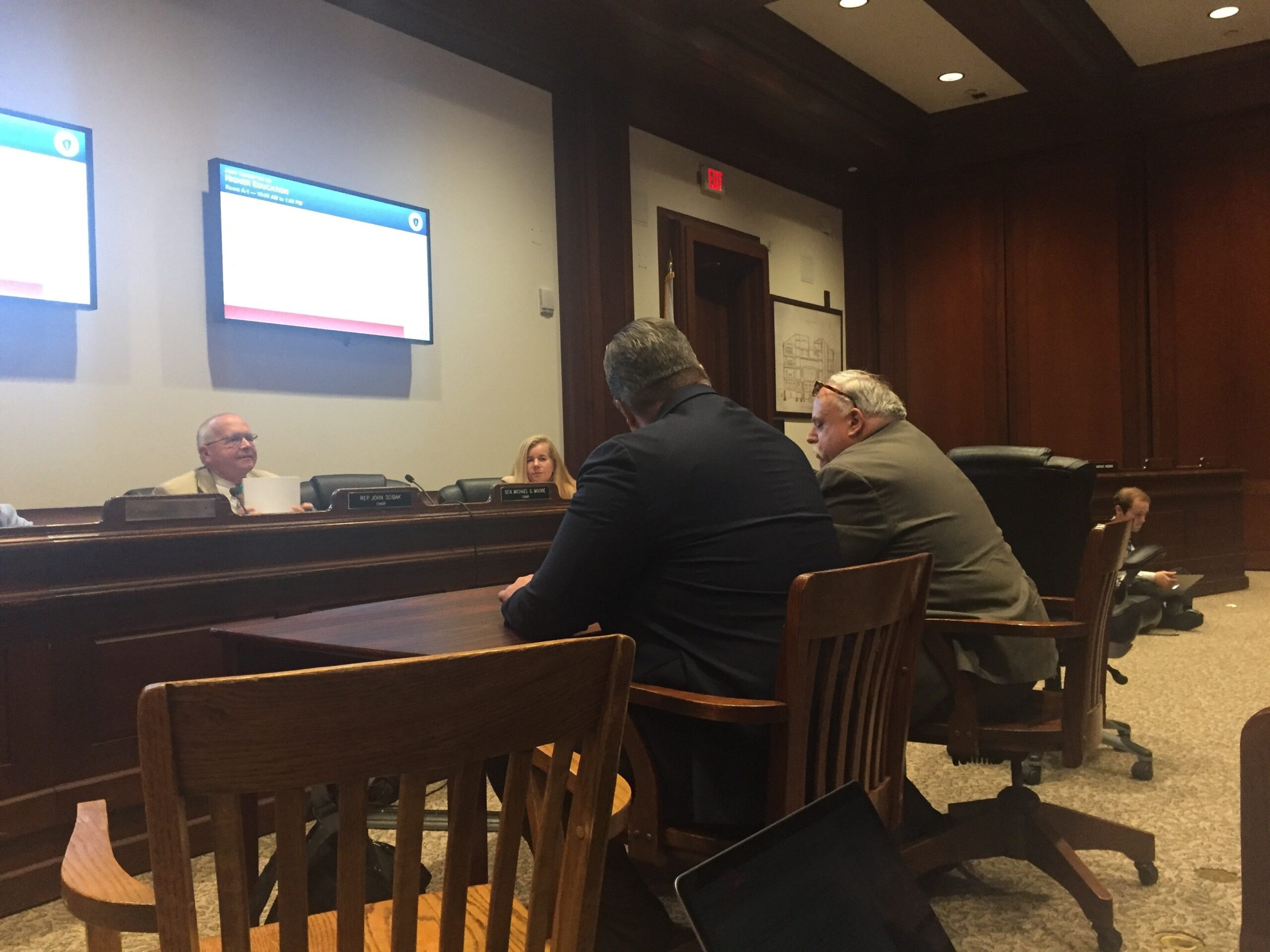The Boulder Fund grant will allow Mass Insight to pilot a new program targeting middle school readiness. May. 22, 2025 –Boston– Mass Insight Education & Research’s President and CEO, Andrea Wolfe, has been selected in the 2025 cohort of Education Leaders of...
Joint Committee on Higher Education hears S.703 and H.2994
The Massachusetts Joint Committee on Higher Education recently held a public hearing to hear testimony on over twenty-five bills. Two of those bills were S.703 and H.2994, legislation championed by MIE and The College Board and sponsored by Senator Michael Moore, Senate Chair of the Joint Committee on Higher Education, and Representative Paul Brodeur.
S.703/H.2994 will enact into law a much needed policy requiring all public MA two- and four-year colleges to reward incoming students college credit for all qualifying scores of 3 or higher on AP exams—what we like to call credit for excellence. The bills also provide much greater transparency on the part of public colleges and universities regarding their AP credit policies by mandating that AP credit policies be accessible on college websites.
This legislation is well overdue. We believe that students deserve credit for the hard work they put in to achieve qualifying scores of 3 on rigorous AP exams. If Massachusetts were to pass AP credit legislation, we would become the first state in New England to do so and would join 23 other states already having system-wide AP credit policies.
Senator Moore, as chair of the Joint Committee, was front and center at the hearing and Representative Brodeur testified in favor of the bills. Also in attendance were our College Board colleagues Suzanne McGurk, Leighann Lenti, and Jason Langdon.
When the time came for testimony on S.703/H.2994, Jason Langdon, executive director of the College Board, sat before the Joint Committee to testify along with MIE’s director of external affairs, John Schneider, who read a statement from MIE president and CEO, Dr. Susan F. Lusi. The testimony from Dr. Lusi read, in part,
Achieving a qualifying score should provide students with a head start on college by rewarding them with college credit for AP excellence and saving them tuition dollars for work well done in high school. Research shows that earning an AP exam score of three or higher results in college success. But our public higher education system is inconsistent in how AP credits are rewarded across the campuses. Policies differ from campus to campus both within and across each sector of the system. A score of three may be acceptable at one institution but not at another, even for the same course.
MIE will continue to actively support a systemwide AP credit policy so that more students see the advantages of doing well on AP exams and receive college credit for hard work completed in high school.

Recent Posts
Cybersecurity Event Introduces Students to Cyber Careers
For the 5th year in a row, Mass Insight Education & Research is hosting the Cybersecurity and You Workshop to introduce Advanced Placement® (AP) STEM high school students to cybersecurity scenarios and concepts as well as postsecondary education and career paths....
Adolescent Literacy Crisis: IES Guide In Action – Webinar
What does the evidence say about how schools can improve the adolescent literacy crisis happening in our country? In this webinar, we explore the Institute of Education Sciences Reading Intervention Guide for Grades 4 through 9, found here, and diving into two of the...
You may also like
President and CEO of Mass Insight Named 2025 Boulder Fund Recipient by Education Leaders of Color
The Boulder Fund grant will allow Mass Insight to pilot a new program targeting middle school readiness. May. 22, 2025 –Boston– Mass Insight Education & Research’s President and CEO, Andrea Wolfe, has been selected in the 2025 cohort of Education Leaders of...
Cybersecurity Event Introduces Students to Cyber Careers
For the 5th year in a row, Mass Insight Education & Research is hosting the Cybersecurity and You Workshop to introduce Advanced Placement® (AP) STEM high school students to cybersecurity scenarios and concepts as well as postsecondary education and career paths....
All Over The Map – Webinar
When it comes to the courses high schoolers across the Commonwealth are required to complete for their diplomas, Massachusetts sets few requirements and collects no school level data. Instead, each high school makes their own determination about the courses required...


